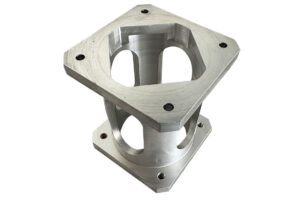
CNC Metalworking Manufacturer in China
Introduction
In the dynamic world of manufacturing, precision and reliability are non-negotiable. As a premier CNC metalworking manufacturer in China, we specialize in delivering high-quality, custom-engineered metal components tailored to meet the exacting demands of industries worldwide. With state-of-the-art technology, a skilled workforce, and an unwavering commitment to excellence, we stand at the forefront of CNC machining solutions, empowering businesses to innovate and thrive.
Why Choose Us? Expertise in CNC Metalworking
CNC (Computer Numerical Control) metalworking is the cornerstone of modern manufacturing, enabling the production of complex, high-tolerance parts with unmatched accuracy. Our facility in China combines advanced machinery, including multi-axis CNC milling and turning centers, with decades of engineering expertise to serve industries such as automotive, aerospace, medical devices, robotics, and energy.
Key strengths that set us apart include:
- Precision Engineering: Leveraging cutting-edge CNC technology, we achieve tolerances as tight as ±0.001mm, ensuring components meet rigorous international standards.
- Versatile Capabilities: From prototyping to mass production, we handle diverse materials—aluminum, stainless steel, titanium, brass, and exotic alloys.
- End-to-End Solutions: Our services span CNC Machining, milling, turning, EDM, laser cutting, and surface finishing, providing a one-stop shop for custom metal parts.
- Quality Assurance: Rigorous inspections via CMM (Coordinate Measuring Machines) and adherence to ISO 9001:2015 and AS9100 certifications guarantee flawless outcomes.
Advantages of Partnering with a Chinese CNC Manufacturer
Choosing a CNC metalworking manufacturer in China offers strategic benefits that global businesses can’t ignore:
- Cost Efficiency: China’s robust supply chain and economies of scale reduce production costs without compromising quality, offering exceptional value.
- Technological Prowess: Chinese manufacturers invest heavily in Industry 4.0 technologies, including AI-driven automation and IoT-enabled machinery, ensuring cutting-edge solutions.
- Skilled Workforce: Our team of engineers and technicians brings decades of experience, adept at solving complex machining challenges.
- Scalability: Flexible production capacities allow us to pivot from small-batch prototypes to high-volume orders seamlessly.
- Global Logistics Network: Strategically located near major ports, we ensure timely delivery to clients in North America, Europe, and Asia.
Commitment to Innovation and Sustainability
Innovation is embedded in our DNA. We continuously upgrade our machinery and software to stay ahead of industry trends, such as 5-axis machining and hybrid manufacturing. Additionally, sustainability drives our operations—energy-efficient processes, waste reduction initiatives, and eco-friendly materials align with global environmental standards.
Industries We Serve
Our CNC metalworking expertise supports a wide range of sectors:
- Aerospace: High-strength, lightweight components for aircraft and satellites.
- Automotive: Precision parts for engines, transmissions, and EV systems.
- Medical: FDA-compliant surgical instruments and implants.
- Energy: Durable components for oil, gas, and renewable energy systems.
Quality Assurance: Building Trust Through Excellence
Quality is non-negotiable. Our ISO-certified quality management system oversees every production stage, from material sourcing to final inspection. Advanced metrology tools and a zero-defect philosophy ensure every component meets client specifications and industry regulations.
Customer-Centric Approach
We believe in partnerships, not transactions. Our dedicated project managers offer:
- Design Support: DFM (Design for Manufacturing) feedback to optimize part functionality and cost.
- Transparent Communication: Real-time updates and 24/7 support.
- Customization: Tailored solutions for unique challenges.
Conclusion: Your Trusted Partner in CNC Metalworking
As a leading CNC metalworking manufacturer in China, we bridge innovation and execution, delivering precision-engineered solutions that drive success. Whether you’re a startup seeking prototypes or an enterprise scaling production, our blend of technology, expertise, and customer focus ensures unmatched results.
Contact Us Today
Ready to elevate your project? Reach out to our team to discuss your CNC machining needs. Discover why global clients trust us as their preferred partner for quality, reliability, and excellence in metalworking.






